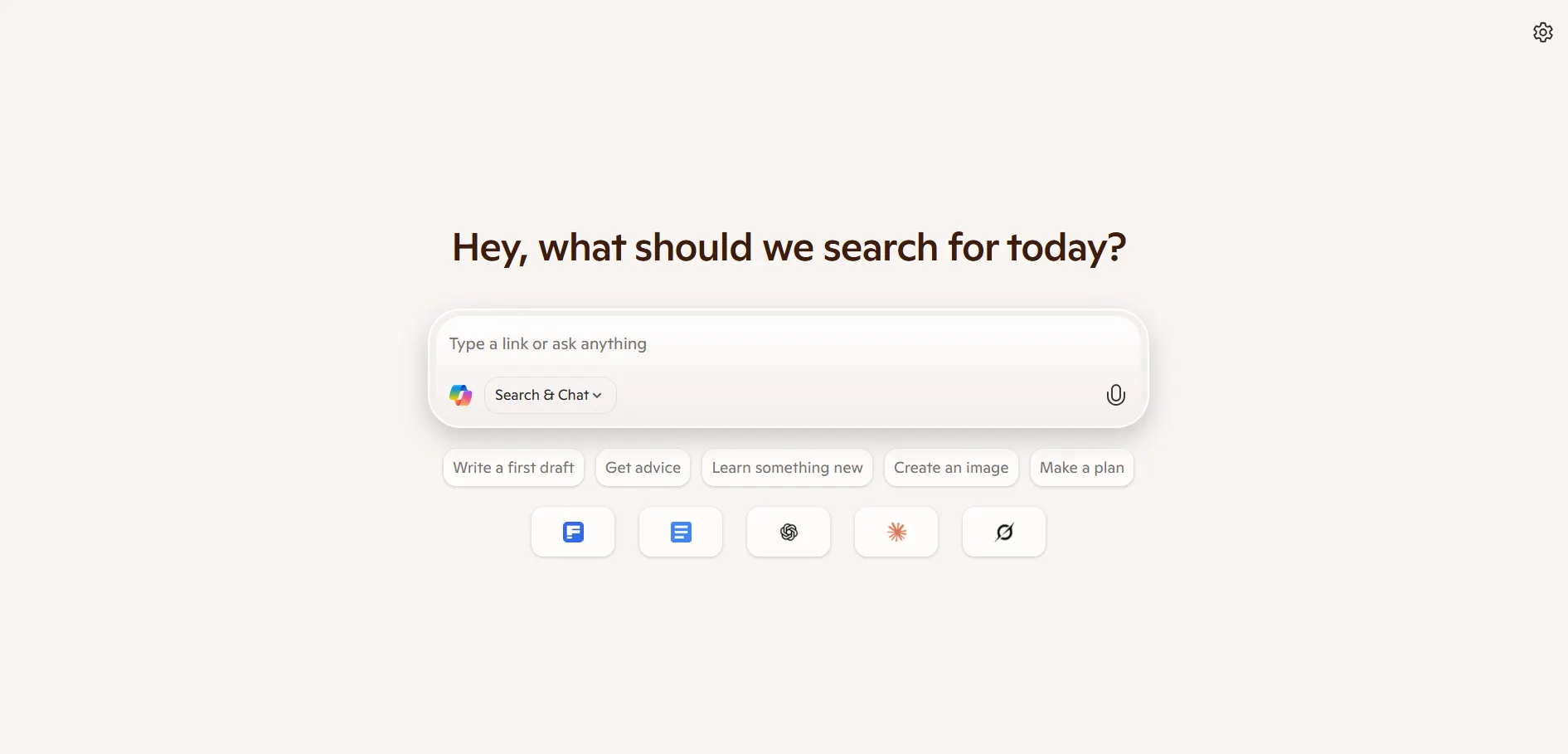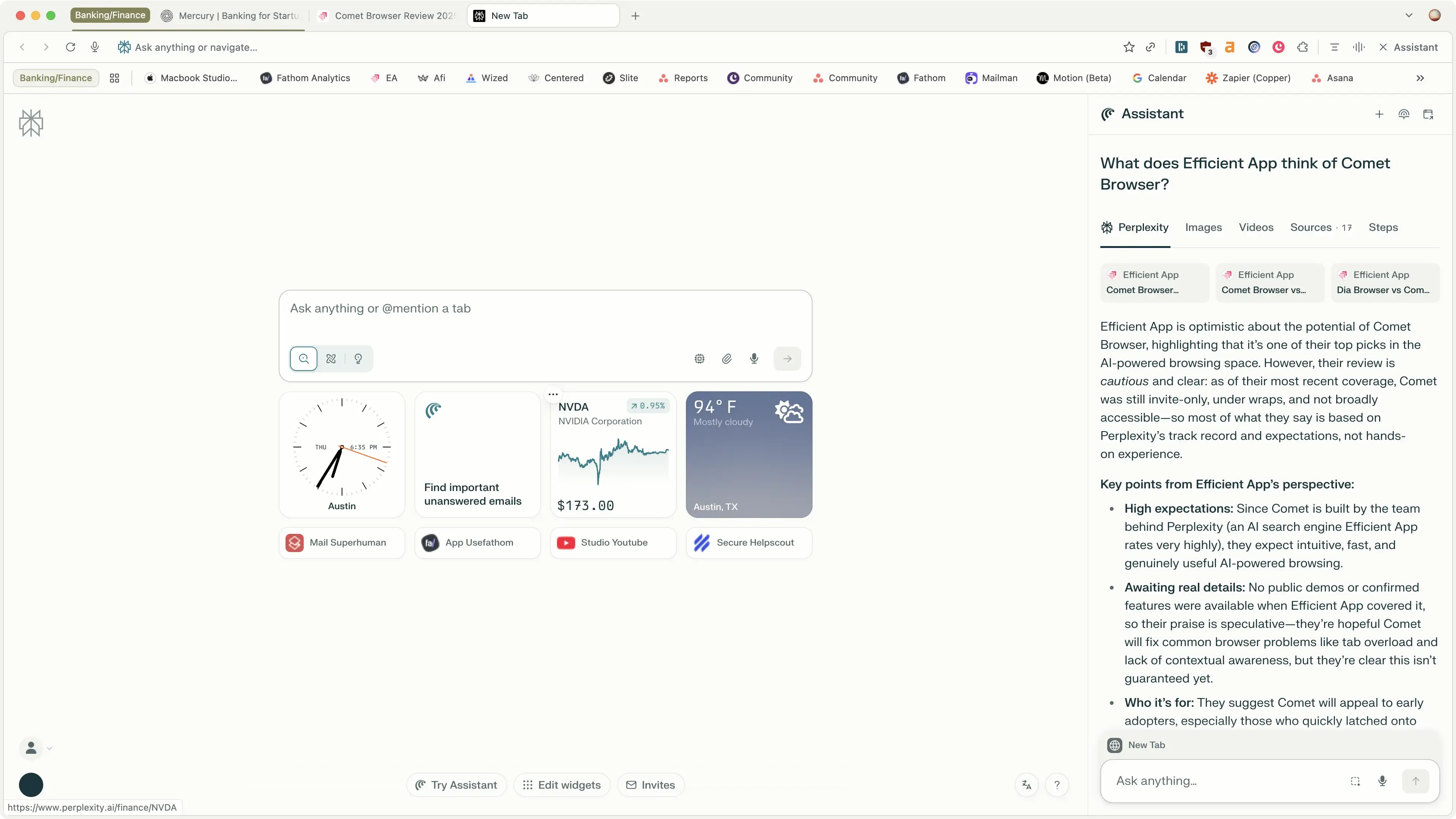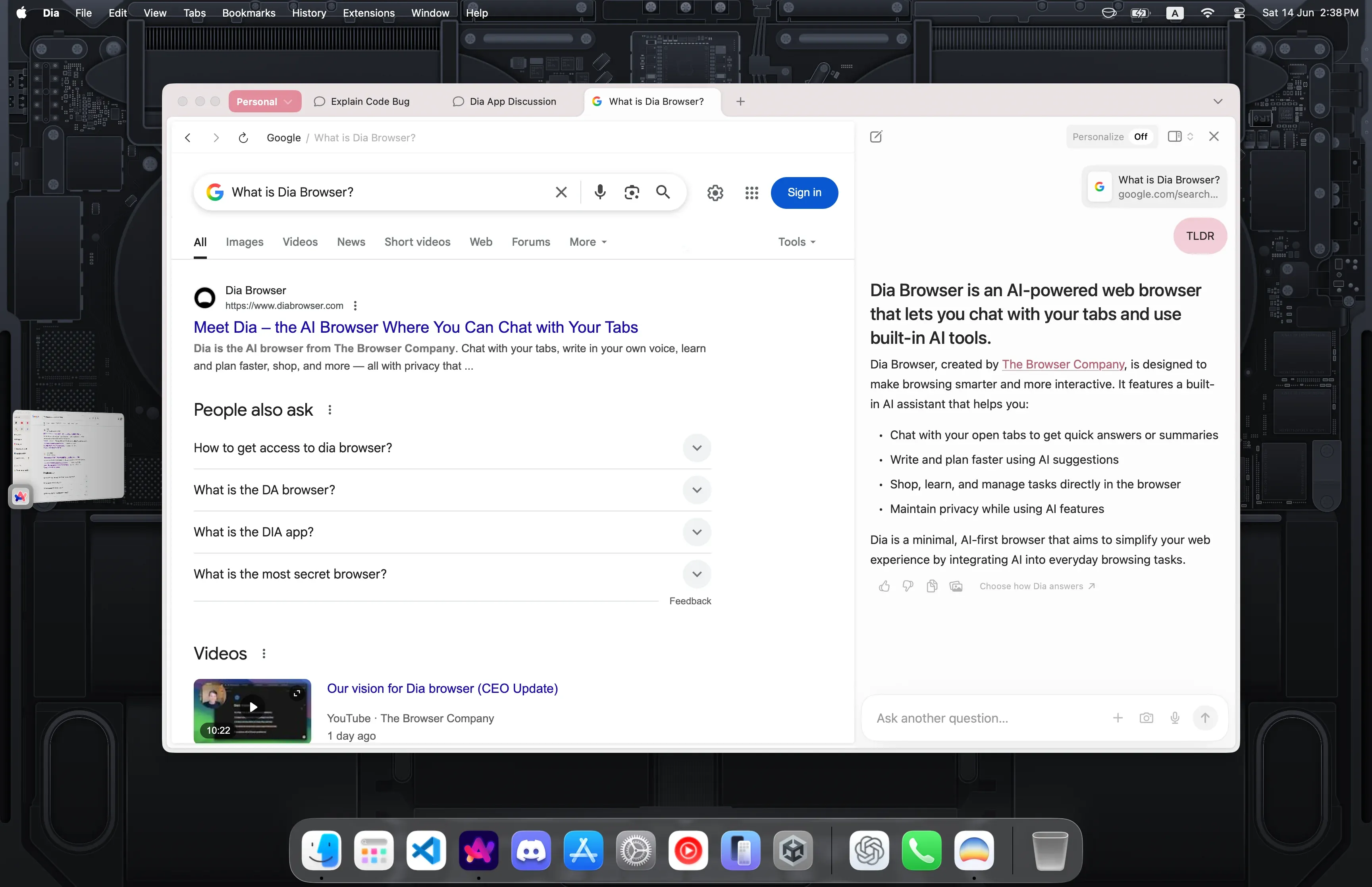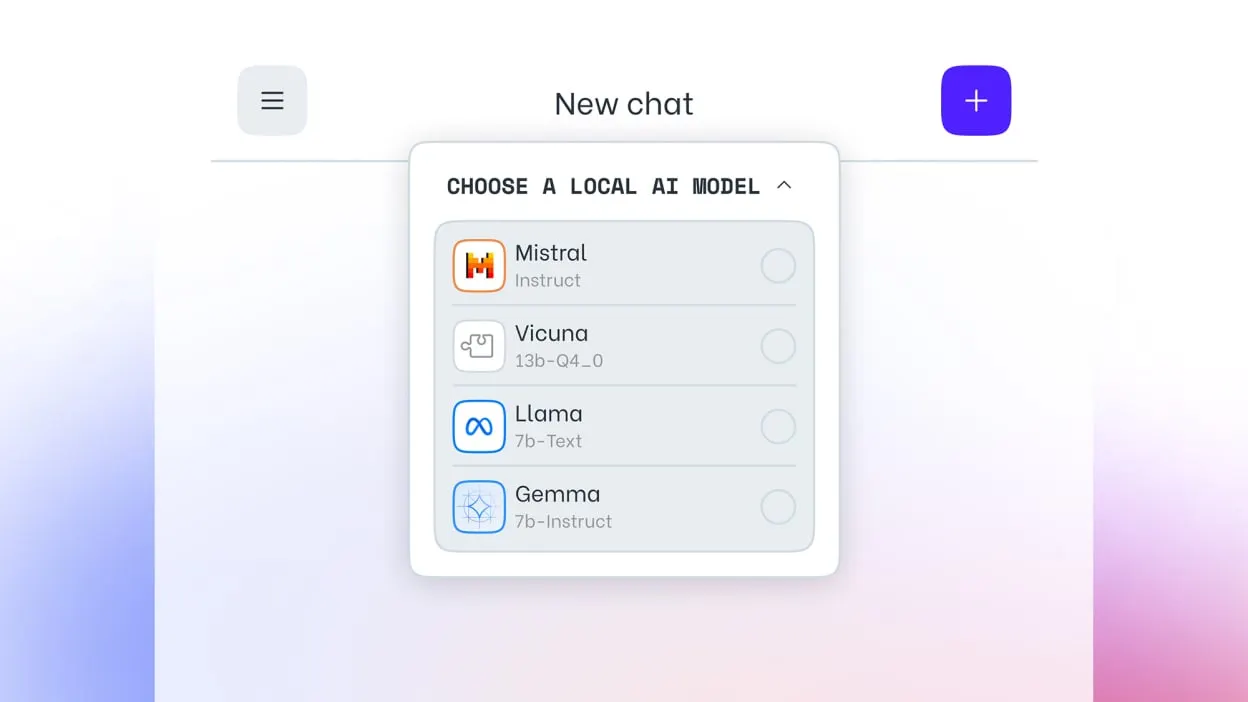In brief
- Microsoft’s Edge Copilot Mode brings free, built-in AI to the masses—no waitlist, no extra app, just ask and it answers.
- Comet and Dia promise supercharged assistants, deep automation, and privacy—if you can stomach the price (or score an invite).
- Opera and soon Neon bet on local AI and wild multitasking, while OpenAI’s rumored browser could blow up the whole game.
Microsoft's launch of Copilot Mode for Edge last week marks a turning point in the browser wars, as the $3 trillion behemoth fully joined the battle. The experimental feature transforms Edge into what the company calls an "AI-powered browser"—and it's far from alone in trying to dominate this nascent field.
A half-dozen companies are now racing to embed artificial intelligence directly into the browsing experience, each with radically different approaches to privacy, pricing, and capabilities. The stakes couldn't be higher: whoever wins could reshape how billions navigate the internet.
The timing is no accident. ChatGPT, Claude, and Perplexity already exist as standalone apps, but you can’t use them to directly navigate the web, nor can they fill out forms, compare prices across shopping sites, or interact with web page elements. An AI browser changes that equation entirely. It's like driving your own car with a team of superintelligent assistants riding shotgun.
Right now, users relying on AI browsers are basically testing a novelty. But this movement points the way to a new standard for surfing the web.
There are a few options available right now, trying to shape the future of what an AI browsing experience would be. Here’s a comparison of what they have to offer.
Microsoft Edge with Copilot Mode: The free (for now) contender

Microsoft's proposition is compelling: a free AI assistant that works on any updated Edge browser. The new Copilot Mode greets users immediately with a unified input box that combines chat, search, and navigation. No more clicking through to ChatGPT—it's right there when you open a new tab.
And this seems to be the proposition for the new AI-powered internet. Instead of going to a web search, your first point of contact is a conversation with an AI agent that will do whatever you ask—chat with you, search the web, recommend a book or a movie, do a comprehensive research on a topic, etc.
The implementation shows Microsoft's years of AI investment paying off. Multi-tab awareness means you can research vacation rentals across a dozen sites and ask Copilot to find the one closest to the beach with a full kitchen. Visual analysis lets you point at a TradingView chart and ask for price predictions without leaving the site. Video summaries extract key points from lengthy content in just one click.
But there are catches. Video analysis only works when captions exist—no captions, no summary. The news feature stumbles without precise date parameters, sometimes serving years-old articles when asked for "recent" updates. And that "limited time free" tag raises questions about future pricing. It also lacks integration even with the Microsoft ecosystem, so you cannot ask it to write an email for you, for example, even if your address is an outlook.com one.
If you want to know more about it, here is an article with our first impressions.
Microsoft promises upcoming features like task journeys that organize your browsing history into topic-based workflows. For now, though, it's a polished but imperfect glimpse at AI-powered browsing.
Perplexity Comet: The $200 AI promise

Comet represents the antithesis of Microsoft's cloud-centric approach. This open-source browser prioritizes storing information locally on users' devices, ensuring data never leaves their computers. The architecture reflects a fundamental bet: that users will trade some AI sophistication for absolute privacy control.
Perplexity is mainly a search engine but Comet's AI capabilities extend beyond simple queries. Comet incorporates AI-powered search and ad blocking directly into its core architecture—not as add-ons, but as integral components of the browsing experience. Every line of code remains auditable through its open-source nature, allowing security researchers and privacy advocates to verify its claims.
It also offers a much more powerful assistant with Gmail integration—leaving Microsoft Copilot in the dust. Users can also access Comet Assistant, a new AI agent from Perplexity that lives in the web browser and aims to automate routine tasks. Perplexity says the assistant can summarize emails and calendar events, manage tabs, and navigate web pages on behalf of users.
So for example, you can order food simply by asking the AI to do it for you, ask it to automatically apply promo codes during checkout, and parse your personal data to find information, among many other things.
The only downside? You have to pay $200 per month to use something that is still in its experimental phase.
Dia: The AI powerhouse that killed Arc Browser

Dia charts a middle course between Microsoft's third-party reliance and Comet's open-source ethos. The browser uses entirely proprietary AI models developed in-house, granting complete control over the technology stack. This approach allows Dia to optimize specifically for its stated mission: maximizing user productivity and streamlining information access.
By building AI models from scratch, Dia avoids licensing fees and vendor dependencies. The company can shape its AI's behavior precisely, creating specialized features that third-party models might not support. Customizable AI features adapt to individual user workflows, promising a more personalized experience than one-size-fits-all solutions.
Besides letting you type in website names and search terms, Dia's URL bar acts as the interface for its in-built AI chatbot. The bot can search the web for you, summarize files that you upload, and automatically switch between chat and search functions. Users can also ask questions about all the tabs they have open, and the bot can even write up a draft based on the contents of those tabs.
It has an interesting GPT-powered assistant that works through a set of skills. The most recent feature included the use of reasoning models to better understand tasks and be more useful for users. So for example, you can ask it to send messages with the same idea but different phrasing based on the chats you have with different persons. It can also assist you better with product hunting, sales, and more thanks to its reasoning capabilities.
But proprietary development demands massive resources, and you can tell it when you interact with the model. While Microsoft can leverage OpenAI's billions in research investment, Dia must fund every improvement independently. Maintaining competitive parity with models like GPT-4 requires continuous investment in talent, infrastructure, and computational resources.
Unfortunately, the browser, which is in beta, is only available to MacOS users with American .edu email addresses. On the upside, it’s on a par with Comet Browser and free.
Opera's Aria: The accessible alternative

Opera takes yet another approach with its Aria chatbot. The company doesn't want to reinvent the wheel, but offers an experience similar to the normal version of Edge with the Copilot chatbot—basically a normal browser with a button for an AI when you need it.
The integration includes a command-line feature for natural language browser control and AI prompts that analyze selected text directly. Control your browser's tabs with Opera's AI agent. Group, close, pin, save, and more, without the manual hassle. Users get 5 free AI-generated images daily without an account, or 30 with a free Opera account.
What distinguishes Opera's proposition isn't the underlying technology—it uses the same OpenAI models as Microsoft—but rather its implementation philosophy. Opera offers all AI features free to users, removing cost barriers that might limit adoption. The browser also integrates its existing VPN service with AI features, creating a privacy layer absent from standard cloud-based implementations.
But Opera's Aria browser AI is the only one that offers experimental support for local Large Language Models (LLMs). And this is a major point for privacy-first enthusiasts, considering that AI companies salivate when they can get their hands on any kind of data (private or public) to train their models.
The future: Opera Neon and OpenAI’s GPT-powered browser
These two browsers are not available right now, but they promise to be 100% focused on agentic tasks.
Opera Neon users will be able to, for example, ask the browser to make a game, a report, a snippet of code, or even a website—it will research, design, and build whatever users need. Opera Neon can even be asked to make multiple things at the same time, enabling true agentic multitasking right in the browser.
There is no known tentative release date to share beyond a waitlist at operaneon.com. The browser promises three distinct modes: “Chat” for conversations, “Do” for task automation, and “Make” for creating everything from games to websites.
Neon will also feature a cloud-based virtual machine that apparently will continue working even when users go offline. This persistence will enable complex, long-running tasks that other browsers can't match. Privacy remains paramount—all web interactions happen locally on your device, with only the creative tasks running in the cloud.
The pricing remains a mystery, though Opera has confirmed it will be a premium subscription product.
Also, OpenAI's anticipated browser entry looms over the entire market. While the company hasn't announced specific plans, its AI expertise and resources make it a formidable potential competitor. Unlike Microsoft, which licenses OpenAI's technology, OpenAI could integrate its models directly without intermediary layers.
If released, the browser is expected to use artificial intelligence in a very—and we mean very—seamless way. Sources suggest the browser would integrate OpenAI's Operator agent for task automation, and leverage the company's 400-500 million ChatGPT users for optimized results.
If the model creator also controls the interface, what new capabilities become possible? Could OpenAI implement features that licensing agreements currently prevent? The company's direct access to model development could enable rapid iteration and experimentation beyond what partners can achieve.
For now, the next best thing OpenAI can offer is a unified agent that uses a sandbox browser for users to interact and ask the model to do complex tasks like buying things, researching on topics, creating presentations, sending emails, etc.
The verdict: Different browsers for different users
There is not really one supreme browser, but based on your profile, there can actually be a "best" AI browser depending entirely on your priorities:
For the mainstream: Microsoft's Copilot Mode delivers the best balance of features, availability, and price (free, for now). It works today on Windows and Mac, requires no special access, and integrates naturally with the Edge browser millions already use.
For power (and rich) users: If money is no object, then Perplexity Comet's $200 monthly fee buys the most sophisticated AI assistant available today. Gmail integration, powerful automation, and privacy-first architecture justify the cost for professionals who live in their browsers.
For the privacy-paranoid: Perplexity Comet, despite the price. Local data storage, open-source code, and built-in ad blocking create an unmatched privacy proposition. Opera Aria comes in second place with its option to run an AI-powered assistant locally. Neon might challenge this when it launches, but for now, Comet and Aria stand as the best ones for this user profile.
For creatives and tinkerers: Dia offers the most refined experience—if you can get access. The Skills system and chat-with-tabs functionality feel genuinely innovative, though the Mac-only limitation and beta status limit its appeal.
For the future-forward: Wait for Opera Neon or OpenAI's browser. Neon's Make mode promises capabilities no current browser can match, while OpenAI's direct model access could unlock entirely new possibilities.

